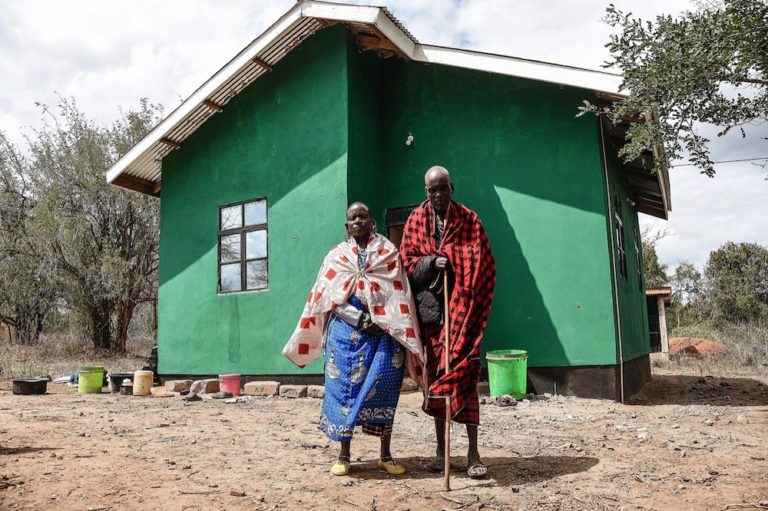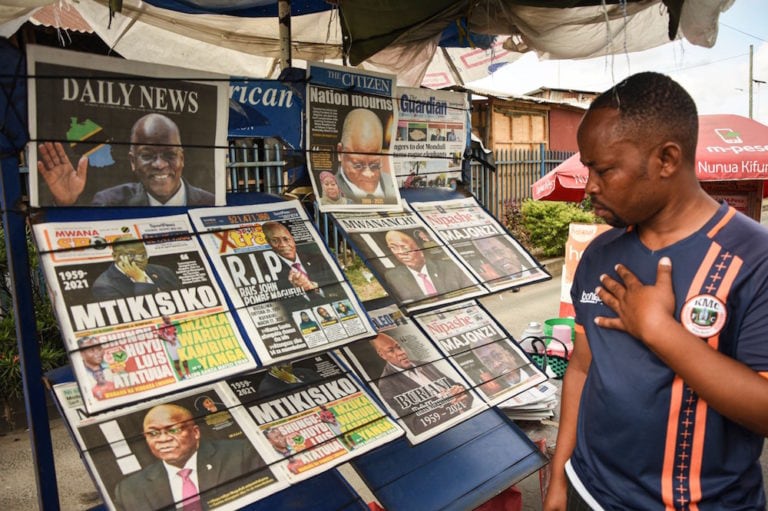(MISA/IFEX) – On 3 July 1998, the Kilimanjaro regional police commissioner (RC), Professor Philemon Sarungi, directed the police to conduct an immediate investigation into the fire that destroyed the house of BBC correspondent Nechi Lyimo on 30 June 1998 in Moshi (northern Tanzania). **Updates IFEX alerts of 18 June and 3 July 1998** According to […]
(MISA/IFEX) – On 3 July 1998, the Kilimanjaro regional police commissioner
(RC), Professor Philemon Sarungi, directed the police to conduct an
immediate investigation into the fire that destroyed the house of BBC
correspondent Nechi Lyimo on 30 June 1998 in Moshi (northern Tanzania).
**Updates IFEX alerts of 18 June and 3 July 1998**
According to the “Sunday News” of 5 July, the RC issued the directive during
an emergency meeting at the RC’s office attended by four Moshi-based
journalists, including Lyimo, as well as the regional police commander,
Pastory Makungu, the regional crime officer, Jamal Rwambow, the national
commissioner of police, Wilson Mwasangu, the Kilimanjaro regional ruling-CCM
party chairman, Peter David, and Moshi Urban District CCM chairman, Faraji
Swai.
The RC was quoted as saying: “since it was the duty of the police to
maintain law and order, the force should strive to nip in the bud such
shocking episodes and save lives of innocent citizens.”
The RC also appealed to Kilimanjaro residents to contribute to a special
fund aimed at helping Lyimo re-establish a homestead and to reaffirm
solidarity during his time of grief following the fire. He also invited
local donors countrywide to contribute to the fund so that Lyimo and his
family could replenish their belongings, which were completely destroyed in
the fire.
The Kilimanjaro police authorities have conceded that the line of
questioning adopted by two police detectives who interrogated Lyimo on 12
June 1998 following the publication of a controversial story in the “Sanifu”
newspaper was a technical error.
Background Information
On the night of 30 June, Lyimo, his wife and their daughter, escaped death
when what appeared to be a petrol bomb was hurled into their house. The
family was asleep at the time, but they managed to escape through a back
window before the entire house was engulfed in flames.
According to the secretary of the Kilimanjaro Press Club, Daniel Mjema, the
incident was believed to be linked to a series of unusual episodes targeted
at some journalists suspected of having written a story in the “Sanifu”
newspaper. The article in question, which appeared in January 1998, reported
on an unnamed Assistant Bishop who was having an affair with a married woman
in his congregation.
On 18 June, MISA reported that at least four journalists had come under
pressure variously from the police and private individuals to reveal the
source of the article. Among those harassed was Lyimo, who was briefly
interrogated by two policemen on 12 June, even though he had never worked
for “Sanifu” and had nothing to do with the story. After he was
interrogated, the police informed him that he would be called as a witness
in a court case, but to date he has neither any knowledge of a court case
nor has he been called as a witness. While the RC has repeatedly stated that
the actions of the two policemen had not been sanctioned, sources indicate
that no action has been taken against the two officers.
Two weeks before Lyimo’s encounter, Mjema, who is also a journalist for
“Majira” newspaper, was approached by a policeman during an informal
encounter and asked to reveal the source of the article. Mjema, who had also
never worked for “Sanifu”, said the policeman then told him that he would be
called in to make a statement. However, to date this has not happened. MISA
also learned that two other journalists, Lilian Kaaya and Aziz Msuya, both
of “Majira”, have been approached by private individuals offering
them money to reveal the sources of the article.


